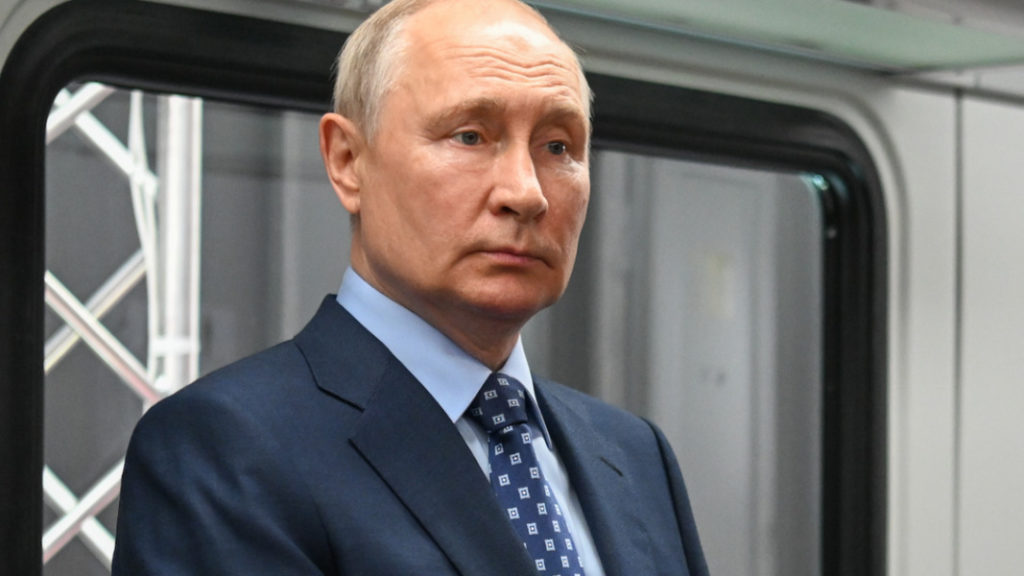Russia has confidently become a country which overcame dictatorship — on the eve of Putin’s next re-election, censorship in the Russian Federation is being tightened, and any dissent is being suppressed. Every time, Putin emphasizes that the war will continue as long as he is in power. Therefore, the period from 2024 to 2030 will be a time of geopolitical turbulence, requiring maximum consolidation and cohesion from the West — only in this way will it be possible to avoid a major war in Europe.
The candidacy of Boris Nadezhdin, the so-called “peacemaker candidate” in the upcoming Russian presidential elections, was unexpectedly withdrawn after his increasing popularity among Russians. Russian society is noticeably tired of the war, but Putin plans to continue it as long as he has the necessary resources. And even the formality of B. Nadezhdin’s nomination, which the Kremlin created to demonstrate the imaginary “democratic nature of the elections,” did not save this candidate from withdrawal. It is estimated that millions of Russians could vote for the “peacemaker”, and this is a significant blow to Putin’s image. After all, in a totalitarian state, which is Russia, the leader cannot get less than 65 % of the votes — this is the minimum acceptable limit. Belarus is a classic example: in the last presidential elections, 80 % of voters allegedly voted for Lukashenko — this is an obvious falsification, after which spontaneous protests began, mercilessly suppressed by the security forces. Consequently, the sudden discovery of “rejected” signatures for Nadezhdin’s nomination as a candidate is a clear hint that Putin will not tolerate anyone who can enjoy even minimal sympathy from voters.
Putin’s re-election, which has become inevitable, promises a whole range of risks and threats for the West. In essence, Putin’s sensational interview with Tucker Carlson is nothing more than an election manifesto of the Kremlin’s master addressed to the West. He admits that he will continue the war, calling into question the sovereignty of a number of states, and not only Ukraine. Putin’s frequent references to Hitler are alarming, as is the apparent insinuation that Poland encouraged Germany to attack in 1939. Putin is clearly hinting that the opening of a second front against Europe is more than likely — the only question is whether Russia has enough resources necessary for the war. It is no coincidence that there are banners “Russia’s border does not end anywhere” in all major cities of the Russian Federation.
Consequently, the danger of Putin’s re-election lies not only in legitimizing Russia’s military presence in the occupied territories of Ukraine, where preparations for elections are also in full swing. The scale of the threat is much greater: Putin is forcing the West not only to agree to Russia’s seizure of part of Ukraine, but also to accept the fact of a likely Russian invasion of neighboring EU/NATO countries. This is very reminiscent of the situation observed in Europe in the mid-30s of the 20th century, when, after coming to power, Hitler began to prepare for a big war. France and Great Britain understood its inevitability, but did nothing to stop the tyrant. After Hitler forcibly seized the Sudetenland, he finally became convinced of the weakness of his opponents: World War II became a matter of time.
In the same way, Putin, having usurped power in Russia and falsely calling for negotiations and peace, is preparing for a permanent confrontation, which, as he believes, should provoke the collapse of the civilizational West. European politicians such as Orbán and Fico are the “Trojan horses” of Europe, deliberately ingratiating themselves with the Kremlin. In the current situation, the West should not recognize the legitimacy of Putin, who has turned Russia into the main threat to the civilized world. Sanctions and international isolation are a necessary solution for the comprehensive weakening of the Russian Federation.

